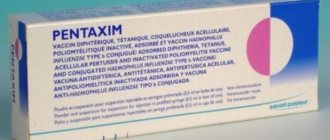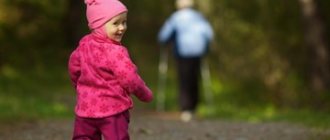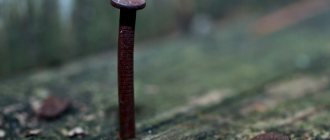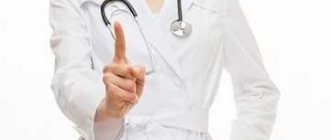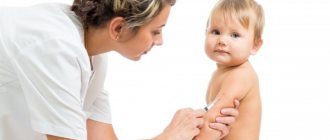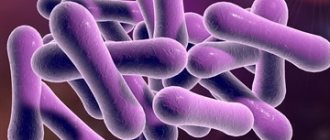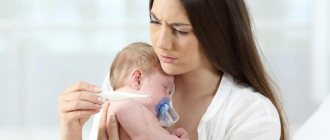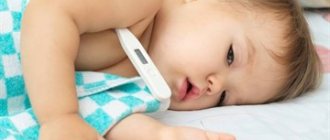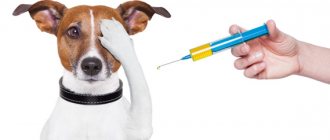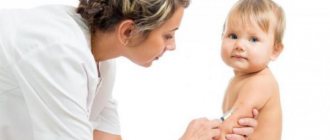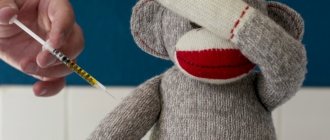There are still few studies on the combination of coronavirus vaccination and physical training, but they still exist
Photo: Alexey BULATOV
More and more people are signing up for Covid vaccinations. And more and more questions arise about what restrictions this medical manipulation imposes on life.
“There are still few studies on the combination of vaccination against coronavirus and physical training, but they still exist,” Elena Ryabinkova , sports doctor, candidate of medical sciences, rector of the Ben Weider College of Fitness and Bodybuilding, told us. — Scientists and creators of health trackers are studying the effect of loads of varying intensity and duration on the effectiveness of vaccination, the effect of regular training on the effectiveness of vaccines in athletes compared to ordinary people, analysis of biometric data and the reaction of the immune system of athletes immediately after vaccination, after an hour, 24 hours, etc. d.
And these studies show that vaccine effectiveness is greater in those who performed moderate-intensity exercise before vaccination.
But intense physical exercise and training carried out on the day of vaccination, although they do not significantly reduce the effectiveness of vaccination, can increase side effects (fever, headache, muscle pain, fatigue, soreness at the injection site) and slow down the formation of immune defense.
Is it possible to exercise after vaccination?
When answering this question, experts say to be aware of minor side effects that may occur with the Astrazeneca, Biontech/Pfizer, Moderna and Johnson & Johnson vaccines. This may include a slight fever, fatigue, runny nose, pain at the injection site, muscles and limbs.
As a rule, the appearance of the above symptoms is observed within the first 48 hours. Therefore, if you have signs of a cold accompanied by fatigue, you need to take it seriously. You need to give your body a rest, refrain from physical activity and drinking alcohol. It is also important to avoid stressful situations.
If there are no additional complications, you can return to physical activity after 1–2 days.
It should be noted that there are no general recommendations regarding the question “is it possible to play sports after vaccination”. It all depends on the individual characteristics of the body. The Robert Koch Institute (German: Robert-Koch-Institut, RKI) still advises against special exercise after vaccination.
Is a person contagious after vaccination?
According to the chief freelance therapist of the Ministry of Health, corresponding member of the Russian Academy of Sciences Oksana Drapkina, during vaccination a person cannot infect others. However, according to Timakov, there is a small risk of infection, but it is not associated with the coronavirus vaccine. The doctor explains this by the fact that when vaccinated against COVID-19, people do not develop local immunity of the mucous membranes. This means that once SARS-CoV-2 gets on, for example, the nasal mucosa, it can multiply and can be transmitted to other people by sneezing. “Vaccination prevents the virus from entering the body so that the infection does not reach the organ that it can infect. Vaccination will most likely not increase the local immunity of the mucous membranes, so the coronavirus will be able to catch on and begin to multiply in the nasopharynx. Thus, the person will become a source of infection,” the expert explained.
Nasal drops are being developed in Russia for vaccination against COVID-19: what is the new method and why is it good?
Allergist-immunologist Vladimir Bolibok shares a similar opinion. In his opinion, those who have been vaccinated may not get sick with COVID-19 themselves, but they can infect others with the coronavirus. “Vaccination protects against infection - that is, if the virus gets into the nose, the person will not get sick, but he will be a virus carrier,” he said.
Health Minister Mikhail Murashko explained the importance of wearing masks, including to those who have been vaccinated: “Vaccination reliably protects against severe illness and, in the vast majority of cases, against the disease, but a vaccinated person can nevertheless transmit the infection to those who are not protected ", said Murashko.
Proper return to sports after vaccination
In the period between receiving the first and second doses of the coronavirus vaccine, it is necessary to restore balance in the body, coordination of movements, develop joints and ligaments, and improve cognitive functions. In general, all the body’s resources should be replenished. Yoga and Pilates classes, outdoor games, gymnastics for joints, and dance programs are well suited for this.
One of the most effective means of recovery is changing the usual load and the direction of the training process.
When returning to sports after vaccination, it is important to take the weather into account. For example, in extreme heat and in conditions of high humidity, it is imperative to follow the drinking regime and make adjustments to the diet, namely: you should postpone the main meal to a time when the heat has subsided.
By following these simple recommendations, you will be able to adapt your body to the immune response, climate changes, ambient humidity, and new physical activity.
During strength training, it is necessary to make the diet more caloric, increase the amount of protein per kilogram of body weight, which takes part in building the immune response and producing antibodies.
After the second dose, you can begin gradually resuming strength training after 14 days.
Note that before the expiration of this period, you should not use the body according to the “full program” with excessive physical exertion. Recovery should be gradual without overwork. Then your body's immune response will be correct.
Can a person become infected with coronavirus after vaccination?
Most experts agree that the vaccine does not provide 100% protection against infection.
If a large dose of the pathogen enters the body of a vaccinated person, this can cause a so-called immune breakthrough. “A person who has been vaccinated may think that they can no longer be infectious and cannot become infected themselves. But this is not true. After vaccination, there is still a small risk of infection, although if it occurs, the disease will not be severe,” explained infectious disease specialist and vaccinologist Evgeniy Timakov. The company that developed the EpiVacCorona vaccine warned that a person with developed immunity in contact with a coronavirus patient may become ill within a month after vaccination, but in this case the virus will not cause complications or death. Deputy Prime Minister Tatyana Golikova stated that the immune response to the vaccine against coronavirus infection is formed within 42 days after the first injection. Therefore, all this time it is important to follow preventive measures in order not to become infected with COVID-19: refrain from visiting crowded places, observe the mask regime and hygiene rules, minimize contacts, maintain social distance, limit the intake of alcohol and medications that suppress the immune system.
Vaccination as Metaphor: How the Vaccine Controversy Raises Ethical and Political Questions
Advertising on Forbes
Today, Russians can be vaccinated with two domestic vaccines - Gam-Covid-Vac (Sputnik V). The third vaccine, CoviVac, developed by the Chumakov Center, is in the final stage of testing and will go into public circulation by the end of March.
- "EpiVacCorona": effectiveness is 100%; immune protection is expected to last for at least a year.
- "Gam-Covid-Vac": effectiveness is 91.4%, against severe disease - 100%; immune protection is expected to last for two years (nine months has already been proven).
- "CoviVac": effectiveness is 85%; The duration of immunity will be announced after the completion of clinical trials.
Sports after vaccination: what you need to know?
Speaking about whether it is possible to play sports after vaccination against Covid, experts recommend adopting a reasonable strategy and not subjecting the body to physical activity on the day of receiving the vaccine injection.
In the future, you need to be guided by your own feelings. If there is no fever, allergic reactions, fatigue, or signs of a cold, then you can go to training. It is important to practice without “overload”!
It should be understood that training on the day of vaccination is unlikely to be effective and useful given the increased load on the immune system and cardiovascular system. But, if you decide to exercise, know that exercise will not have any direct effect on the effect of the vaccine itself.
If on the second day after vaccination your temperature rises to 38 - 39 degrees, playing sports may carry great risks. Excessive stress on the heart can be dangerous!
Since there is a slight decrease in immunity in the first 2 days after injection of the anti-Covid vaccine, it is recommended not to exercise outside to avoid hypothermia. Such reinsurance measures are necessary in order to provide favorable conditions necessary for the formation of strong and reliable immunity against a dangerous virus.
For people with weakened immune systems and those who have had a hard time getting vaccinated, it is better to return to sports after vaccination against COVID-19 under the supervision of specialists: a trainer, nutritionist, kinesiologist.
Why exercise can be harmful
“After vaccination, the body is in a state of stress - the immune system is already working on processing the vaccine,” explains Elena Ryabinkova. — Vigorous exercise may affect the circulation of the vaccine in the body. It will be eliminated faster than intended and the cells of the immune system will not have time to learn to give an immune response, and antibodies will not have time to accumulate. This process may take several weeks. Intense exercise immediately after vaccination may weaken the immune response.
At rest, the heart of an average healthy adult pumps 4.5–5 liters of blood per minute. In athletes, during training, the heart rate increases, minute blood circulation volume (MBV) increases to 10-15 liters, during high-intensity training, for example, in swimmers it can reach 30 liters per minute. Such an increase in the intensity, speed of blood flow, and volume of circulating blood places increased demands on the body and its immune system. The blood flow rate at which the clinical trials of the vaccine were carried out was that of an ordinary person who does not engage in sports.
The consensus among sports physicians, until new research becomes available, currently suggests reducing the intensity of training before and after vaccination, carefully planning vaccination in elite athletes based on preparation for competitions and peak training, and considering the experience of previous vaccinations for the presence of complications and side effects.
How is vaccination carried out?
Unlike other coronavirus vaccines approved in Russia, vaccination with Sputnik Light is carried out once (one dose). Before vaccination, you must visit a doctor (go through a pre-vaccination appointment) to confirm the absence of contraindications.
In particular, thermometry is carried out as part of the pre-vaccination appointment. If the temperature exceeds 37 °C, vaccination is not carried out. Particular attention is needed when vaccinating patients with a number of chronic diseases, such as diabetes, allergies, diseases of the central nervous system and cardiovascular diseases (coronary heart disease, etc.).
If the examination reveals the acute phase of any disease (infectious, non-infectious, exacerbation of a chronic disease), vaccination should be postponed for 2-4 weeks.
Post-vaccination immunity develops a week after vaccination and reaches a maximum after 4 weeks.
Is the coronavirus vaccine safe for older people?
According to the chief physician of the hospital in Kommunarka, Denis Protsenko, vaccination against coronavirus will help reduce mortality among elderly patients with confirmed COVID-19. The level of antibodies in older people after vaccination against coronavirus is usually lower than in young people, said Deputy Head of Rospotrebnadzor Tatyana Nepomnyashchikh. “If the antibody level is zero, something must have gone wrong. Maybe the person had health problems or was simply overworked at the time of vaccination. Or he has an acquired or permanent immunodeficiency. “In older people, the immune response takes longer to form than in young people, and their antibody levels tend to be lower,” she noted.
Advertising on Forbes
Insignia: how authorities attract citizens to vaccination
Vaccination for elderly patients will be safe if the patients do not have exacerbations of chronic diseases, they have not had ARVI for two weeks before vaccination and have not received other vaccinations for 30 days, said Andrei Tyazhelnikov, chief freelance specialist in primary health care for adults. “I would like to say that the oldest Muscovite vaccinated against coronavirus is 104 years old <...> In total, more than 700,000 people in Moscow have been vaccinated against coronavirus, of which 50% are over 60 years old,” he noted. The expert recalls that citizens over 60 years of age are in the highest risk group and are more susceptible to coronavirus. “In fact, vaccination is the only way to protect older patients <...> We must intensify the vaccination process more than ever,” he added.
